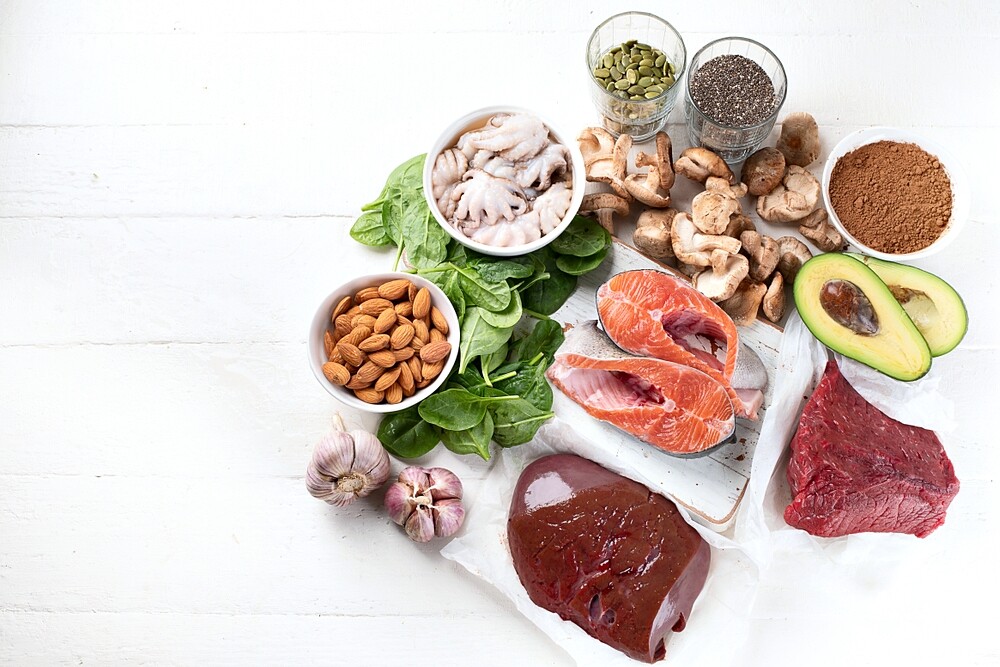Foods containing zinc can help us to cover our zinc needs. With the food from this list you are always well supplied!
Why Do We Need Zinc?
Zinc, like iron, is an essential trace element for the body, which it cannot produce itself. Among other things, zinc plays a major role in cell division and is therefore relevant in the childhood growth phase. But adults should also cover their zinc needs: The trace element is important for metabolism, healthy skin and hair, good wound healing and a strong immune system. Our hormone balance is also dependent on a good supply of zinc. The body can be well supplied by food containing zinc.
How High is The Demand for Zinc?
The German Society for Nutrition recommends the following quantities to prevent a zinc deficiency:
- Men: Ten milligrams / day
- Women: Seven milligrams / day
- Pregnant women: ten to eleven milligrams / daily
Vegans (and some vegetarians) also tend to have a somewhat higher zinc requirement, because the body can use zinc from animal products somewhat better than zinc from plant foods. These contain components that hinder the absorption of zinc. Phytate and oxalic acid, which are found in large quantities in cereal and nut products, are mainly responsible for this. If the food is fermented, roasted, soaked or germinated, the phytate level is lowered again somewhat. Dietary supplements need to be used only rarely if you are specifically eating vegetable foods with a high zinc content.
Zinc-containing Foods: These are The Best
To avoid zinc deficiency, the following zinc-rich foods should be on your diet especially often:
Animal Foodstuffs Containing Zinc
- Oysters: 22 mg
- Liver (of pig, bovine or calf): 6 mg
- Beef meat: 4,41 mg
- Cheese, especially Emmental and Gouda: 3 – 4,6 mg
- Egg yolk: 3,8 mg
- Shrimps: 2.3 mg
Vegetable Foodstuffs Containing Zinc
- Poppy seed: 8 mg
- Pumpkin seeds: 6 -7 mg
- Sunflower seeds: 5,7 mg
- Linseed: 5,5 mg
- Brazil nuts: 4 mg
- Oat flakes: 5 mg
- Whole grain products: 3.5 – 4 mg
- Maize: 3,5 mg
- Pulses like lentils: 2 – 4 mg
- Peanuts: 3 mg
- Buckwheat: 2,7 mg
- Walnuts: 2,7 mg
Do I have a Zinc Deficiency?
There are various symptoms that may indicate that a zinc deficiency is present. These include, above all:
- Poorly healing injuries
- Brittle fingernails and hair
- Hair Loss
- High susceptibility to infections
- Flavour disorders
If you experience these symptoms, you should eat a few more zinc-containing foods in the future and see if the symptoms disappear.

